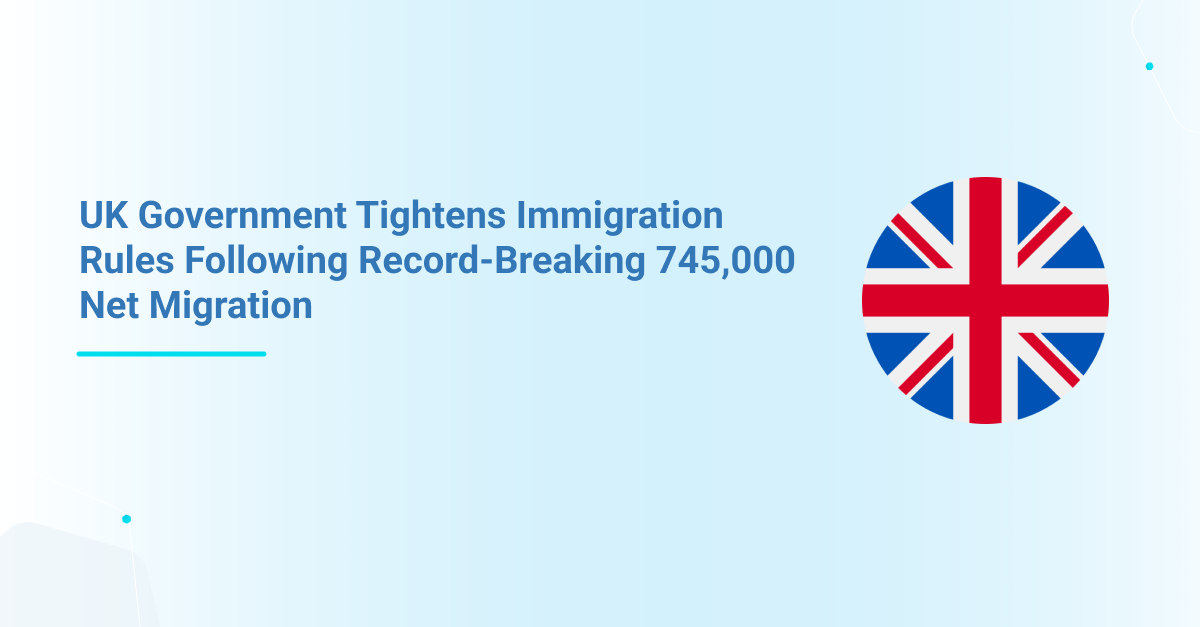UK Government Tightens Immigration Rules Following Record-Breaking 745,000 Net Migration in 2022

UK Government Unveils Sweeping Immigration Reforms to Tackle Migration Challenges
In a bold move to address long-standing concerns over migration levels, Interior Minister James Cleverly declared on Monday that the UK government would implement a series of comprehensive measures to reshape the nation's immigration policies. These changes would be implemented in Spring 2024.
Cleverly emphasized the need to curb migration, stating, “Migration to this country is far too high and needs to come down, and today we are taking more robust action than any other government before.”
- Minimum Salary Threshold for Skilled Workers: The government plans to raise the minimum salary threshold for foreign skilled workers from £26,200 to £38,700, encouraging businesses to prioritize British talent and invest in their workforce. This shift aims to deter over-reliance on migration while aligning salaries with the average full-time salary for these professions.
- Overhaul of the Shortage Occupation List: To combat the perceived exploitation of the Shortage Occupation List, the government intends to reform the system, ending the 20% discount applied to minimum salaries for workers in shortage areas. Additionally, there will be a review and reduction of job types on the list to ensure a more strategic approach to immigration in sectors facing shortages.
- Changes to Family Visas: The minimum income required for a British citizen to bring a spouse or dependant into the UK on a family visa will increase to £38,700, a significant rise from the current 2012 rate of £18,600. This adjustment aims to ensure that individuals can financially support their dependants.
- Health and Care Visas: In an effort to address the perceived misuse of health and care visas, overseas care workers will no longer be permitted to bring family dependents. Care firms seeking to sponsor visa applications will need to be regulated by the Care Quality Commission.
- Student Visas and Graduate Route Review: Following previous tightening of regulations on family members accompanying students, the government will task the Migration Advisory Committee with reviewing the graduate route for student visas. The objective is to prevent abuse and uphold the integrity and quality of higher education in the UK.
As the UK grapples with the aftermath of Brexit, these measures reflect the government's commitment to reducing net migration and ensuring that those who come to the UK contribute positively to the economy without overburdening public services.
The impact of these reforms will undoubtedly be felt across various sectors, sparking discussions about the balance between attracting foreign talent and safeguarding the interests of the domestic workforce.
